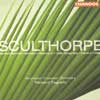Sculthorpe Orchestral Works
Exceptionally sympathetic advocacy for the doyen of Australian composers
View record and artist detailsRecord and Artist Details
Composer or Director: Peter Sculthorpe
Genre:
Orchestral
Label: Chandos
Magazine Review Date: 5/2003
Media Format: CD or Download
Media Runtime: 66
Mastering:
Stereo
DDD
Catalogue Number: CHAN10063

Tracks:
| Composition | Artist Credit |
|---|---|
| Irkanda I |
Peter Sculthorpe, Composer
Peter Sculthorpe, Composer Richard Tognetti, Violin |
| Irkanda IV |
Peter Sculthorpe, Composer
Australian Chamber Orchestra Peter Sculthorpe, Composer Richard Tognetti, Violin |
| Lament for Strings |
Peter Sculthorpe, Composer
Australian Chamber Orchestra Emma-Jane Murphy, Cello Peter Sculthorpe, Composer Richard Tognetti, Conductor |
| Sonata for Strings No. 2 |
Peter Sculthorpe, Composer
Australian Chamber Orchestra Peter Sculthorpe, Composer Richard Tognetti, Conductor |
| Cello Dreaming |
Peter Sculthorpe, Composer
Emma-Jane Murphy, Cello Peter Sculthorpe, Composer |
| Djilile |
Peter Sculthorpe, Composer
Australian Chamber Orchestra Peter Sculthorpe, Composer Richard Tognetti, Conductor |
Author: Andrew Achenbach
Founded in 1975, the Australian Chamber Orchestra has consistently championed the music of its countryman, Peter Sculthorpe (b1929). This Chandos anthology – the group’s third disc of the composer’s music – adds two new items to the current listings.
Premièred by Steven Isserlis and the BBC Philharmonic under Yan Pascal Tortelier during the 1998 Manchester Cello Festival, Cello Dreaming derives its inspiration from the sights, sounds and diverse cultural mix of Australia’s northern coastline. It’s a beguiling evocation, boasting nature music of imagination and local colour; Emma-Jane Murphy is an impressive soloist. The Aboriginal melody known as ‘Djilile’ was first used by Sculthorpe as far back as 1950 in his Fourth String Quartet. The present transcription for strings is one in a series of reworkings of a tune that has haunted the composer for over 50 years. No less appealing is the substantial Second String Sonata (1988), an arrangement of the Ninth Quartet of 1975.
Prior to this, shrewd programming frames the threnodic Irkanda IV for solo violin, strings and percussion (Sculthorpe’s first real breakthrough from 1961, named after the Aboriginal word for a remote and lonely place) between Irkanda I for solo violin from 1955 (a beautifully proportioned essay which provides the first glimpse of the mature composer in its rapt identification with Australia’s landscape and wildlife) and the moving 1976 Lament for strings. It’s not hard to detect a kinship, so naturally does each piece emerge from its predecessor. Both Irkandas find the ACO’s leader and artistic director, Richard Tognetti, on exemplary form.
Three tracks here (Irkanda IV, Lament and the Second Sonata) overlap with a rival ABC Classics release featuring these same artists. To be honest, there’s little to choose between the two in terms of performance (those earlier accounts are a degree more restrained), but Chandos’s sound definitely has the edge, possessing breathtaking definition and range. A very fine issue.
Premièred by Steven Isserlis and the BBC Philharmonic under Yan Pascal Tortelier during the 1998 Manchester Cello Festival, Cello Dreaming derives its inspiration from the sights, sounds and diverse cultural mix of Australia’s northern coastline. It’s a beguiling evocation, boasting nature music of imagination and local colour; Emma-Jane Murphy is an impressive soloist. The Aboriginal melody known as ‘Djilile’ was first used by Sculthorpe as far back as 1950 in his Fourth String Quartet. The present transcription for strings is one in a series of reworkings of a tune that has haunted the composer for over 50 years. No less appealing is the substantial Second String Sonata (1988), an arrangement of the Ninth Quartet of 1975.
Prior to this, shrewd programming frames the threnodic Irkanda IV for solo violin, strings and percussion (Sculthorpe’s first real breakthrough from 1961, named after the Aboriginal word for a remote and lonely place) between Irkanda I for solo violin from 1955 (a beautifully proportioned essay which provides the first glimpse of the mature composer in its rapt identification with Australia’s landscape and wildlife) and the moving 1976 Lament for strings. It’s not hard to detect a kinship, so naturally does each piece emerge from its predecessor. Both Irkandas find the ACO’s leader and artistic director, Richard Tognetti, on exemplary form.
Three tracks here (Irkanda IV, Lament and the Second Sonata) overlap with a rival ABC Classics release featuring these same artists. To be honest, there’s little to choose between the two in terms of performance (those earlier accounts are a degree more restrained), but Chandos’s sound definitely has the edge, possessing breathtaking definition and range. A very fine issue.
Discover the world's largest classical music catalogue with Presto Music.

Gramophone Digital Club
- Digital Edition
- Digital Archive
- Reviews Database
- Full website access
From £8.75 / month
Subscribe
Gramophone Full Club
- Print Edition
- Digital Edition
- Digital Archive
- Reviews Database
- Full website access
From £11.00 / month
Subscribe
If you are a library, university or other organisation that would be interested in an institutional subscription to Gramophone please click here for further information.




